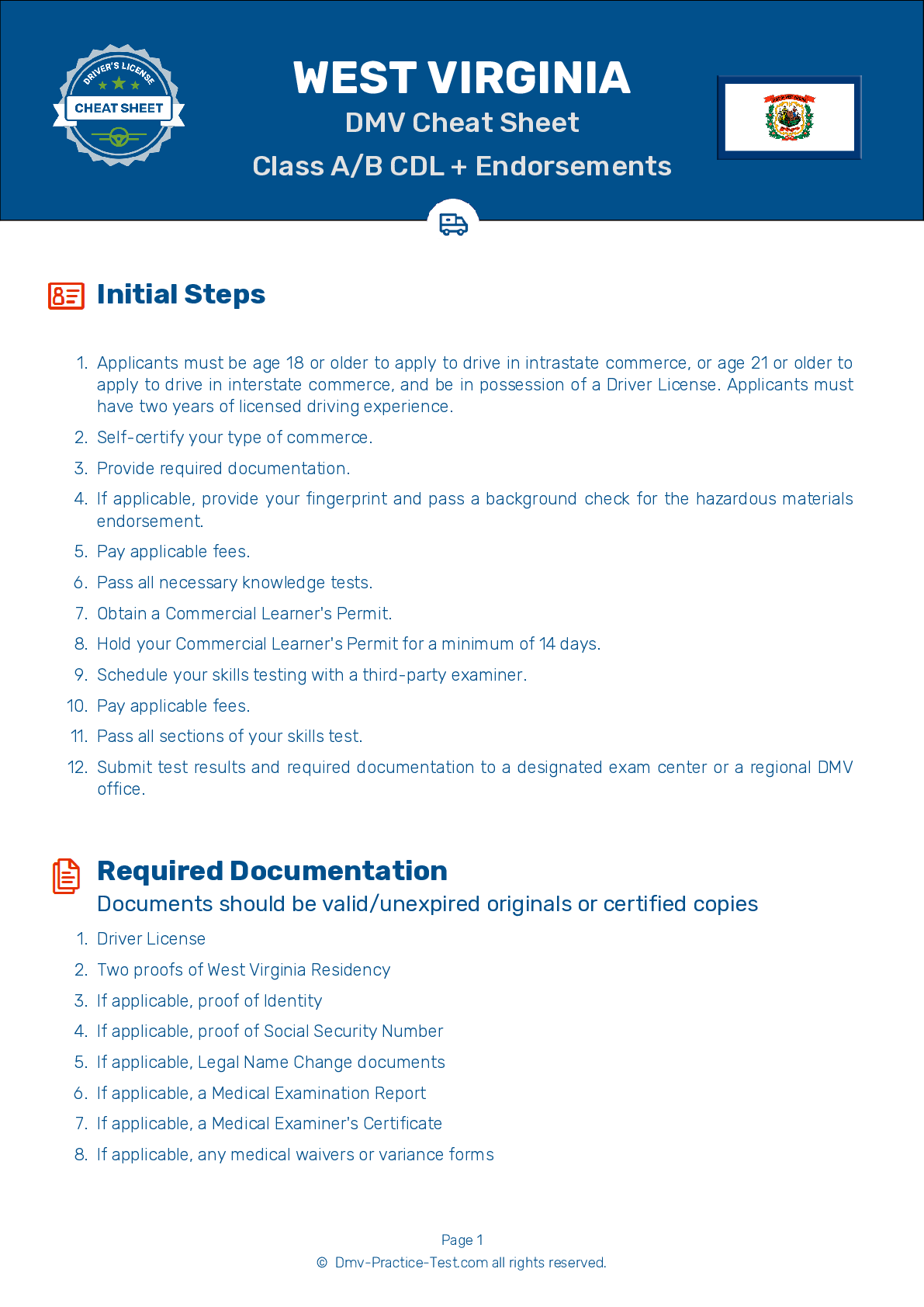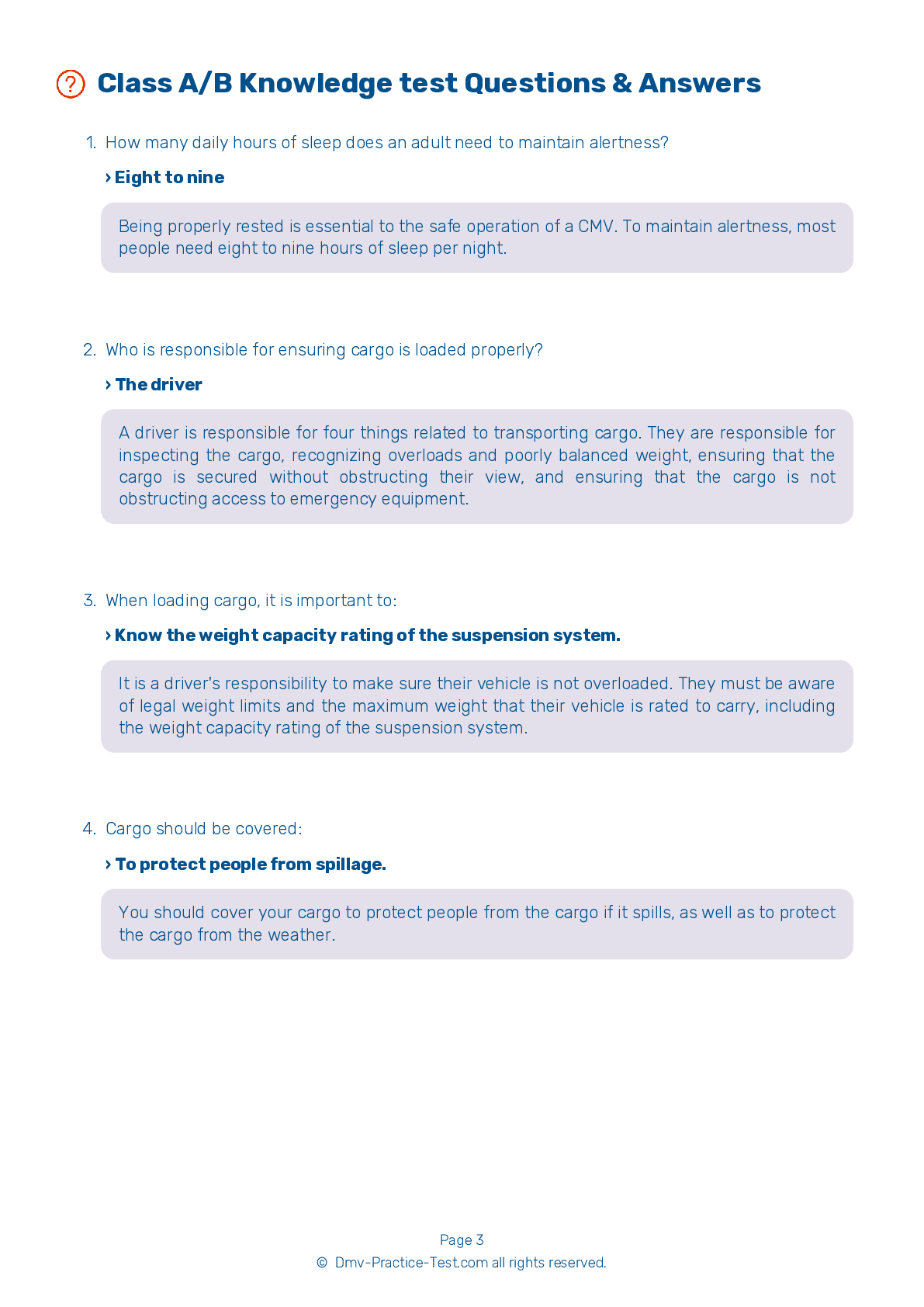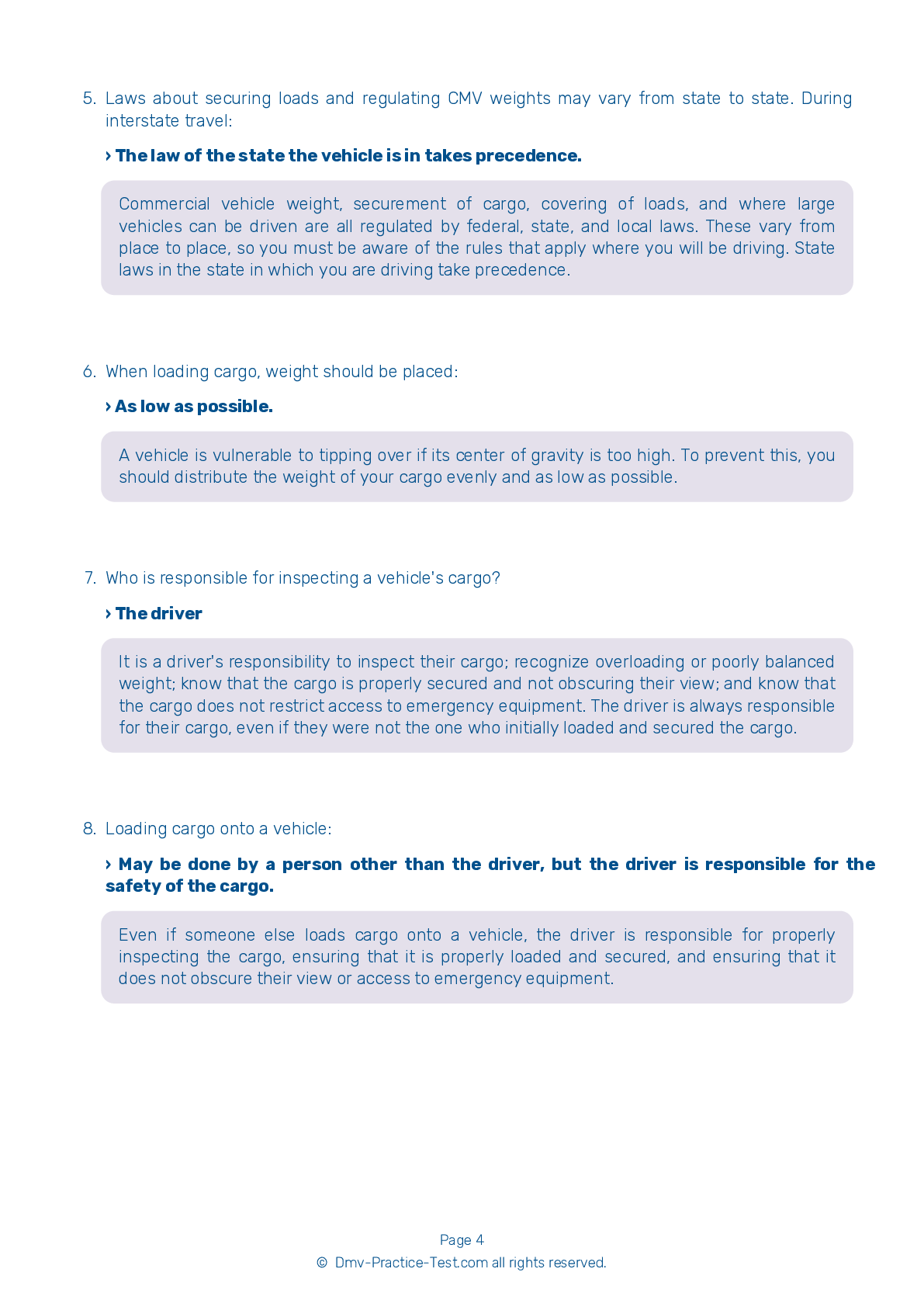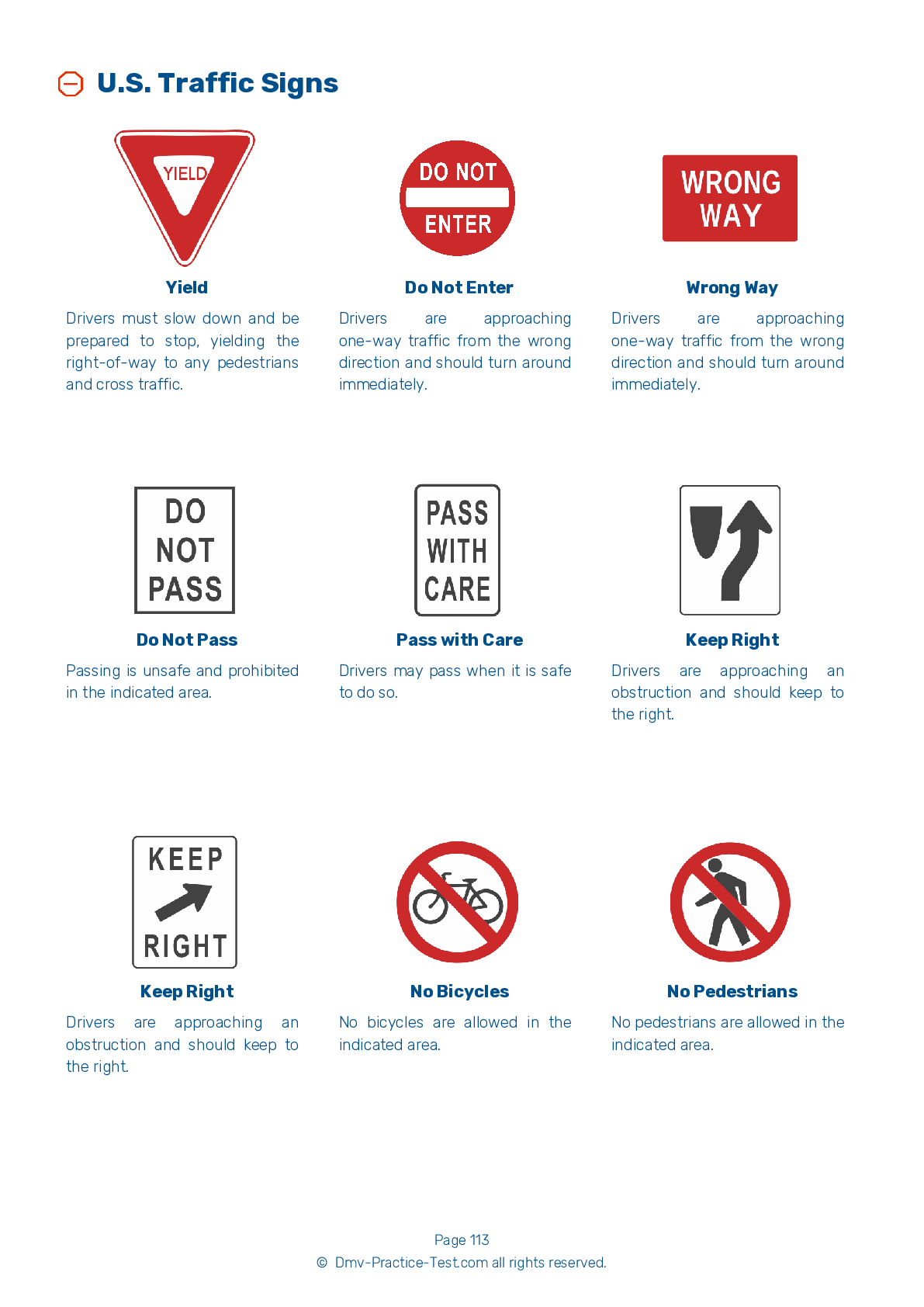Class B Driving Test | West Virginia 2026 #1 Page 5 of 7
Train for FREE online with our West Virginia class B license test. The official exam test consists of several obligatory parts, with all of them checking your knowledge of different blocks of road rules. If you need to obtain a WV CDL class B permit in 2026, practice as much as possible. Free sample tests published on our website will help you check and improve your knowledge and boost your grades. Please bear in mind that CDL class B requirements may vary from state to state.
29 . When inspecting the exhaust system for defects, which of the following should be fixed?
Exhaust system defects can be extremely serious because they may make it possible for poisonous fumes to enter into the cab or sleeper berth. Issues to check for in a pre-trip inspection include loose, broken, or missing exhaust pipes, mufflers, tailpipes, vertical stacks, mounting brackets, clamps, bolts, or nuts; exhaust system parts that are rubbing against fuel system parts, tires, or other moving parts of the vehicle; and exhaust system parts that are leaking.
30 . When inspecting cargo, the driver should do all of the following, except:
Cargo should be inspected by a driver to ensure that it is properly secured, balanced, and not exceeding weight limits.
31 . When starting a trip while transporting a load, the driver should:
The securement of cargo must be checked before beginning a trip, within the first 50 miles of a trip, and then again every three hours or 150 miles thereafter.
32 . How many points will be added to your driving record for littering?
In West Virginia's point system, littering incurs three points on a driver's record. If a driver accrues 12 points or more, their license will be suspended.
33 . The maximum speed limit in a school zone where children are present, unless otherwise posted, is:
Unless otherwise posted, the speed limit in West Virginia school zones where children are present is 15 mph. Always drive with caution when you are near children or other pedestrians.
34 . Some air brake systems use alcohol:
Some air brake systems contain an alcohol evaporator. This device introduces alcohol into the braking system to inhibit the formation of ice.
35 . When traction is poor, a driver should accelerate slowly:
Speeding up too quickly on a road with poor traction could cause a driver to lose control of their vehicle. In conditions that cause poor traction, a driver should accelerate especially smoothly and gradually.
See the exact questions that will be on the 2026 West Virginia DMV exam.
99.2% of people who use the cheat sheet pass the FIRST TIME
Lillian MCcranie explains how our CDL study guide was helpful in passing the exam and recommends it to everyone.
Cameron tells us how he purchased the CDL exam, and found it to be a useful tool which helped him pass the exam and find a job.



